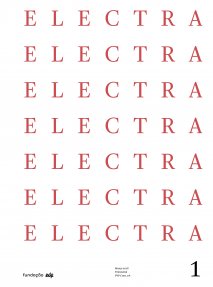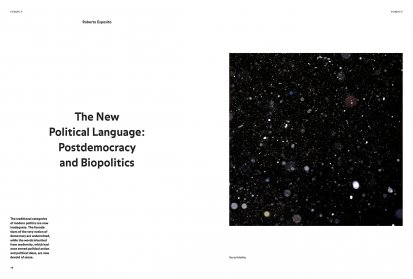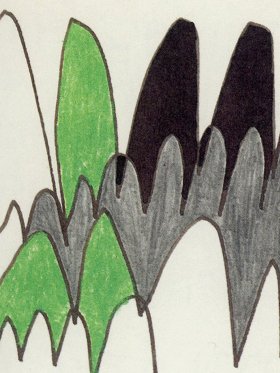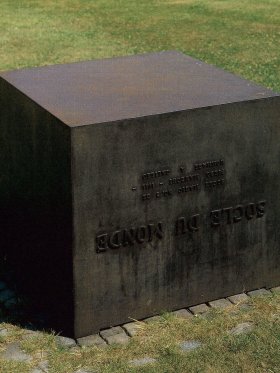The term ‘postdemocracy’ emerged at the beginning of this century. Colin Crouch’s book of the same name came out in 2000, while an interview with Ralf Dahrendorf entitled ‘After Democracy’ appeared a year later. The thesis advanced by both is that, although the formal institutions of democracy remain in life, its living substance has been depleted in favour of a different regime, which can no longer be called properly ‘democratic’. Both authors locate the causes of this transition in a threefold crisis — of representation, of legitimacy, and of sovereignty — a crisis that depends in its turn upon the dynamics of globalisation. Over the last thirty years, the latter have undermined the foundations of the very locus of modern democracy, namely the national states in which democracy was born and developed. The result, on the one hand, is a shift of power toward supranational bodies of an economic and financial type, which are non-elective and therefore democratically illegitimate. On the other hand, it has led to a vertical crisis of the intermediate bodies — parties, trade unions, and even parliaments — fuelling a growing personalization of politics, which has become both cause and effect of the populist trend currently swelling in Europe and America, and now the scapegoat for the entire establishment and its media organs.
How convincing is this reconstruction? Does it represent the real extent of the current crisis? I am not convinced at all. Not so much because the phenomenology in itself is wrong but because, for those of us who like to work on contemporary events in genealogical terms, interweaving synchrony and diachrony, it simplifies and flattens into a twenty-year period a history that is much longer and more complex. Of this deep history — which has led to the exhaustion of what has long been called ‘democracy’ — I can only provide a brief overview in this article. I will pause on a few key moments, all of which are traceable to a process of the governmentalization of social life, a process defined by some with the by now overused term biopolitics.
The first moment along this path — a naturally bumpy and contradictory one, as are all historical processes of long duration — can be situated at the beginning of the eighteenth century, when the life of the population ceased to be viewed by the sovereign as a resource to be consumed, as cannon fodder even, and became a valuable asset that required protection and development. It was then, with the progressive transformation of the sovereign regime into a governmental one, that the first dispositifs for controlling and disciplining collective life arose and were developed, initially activated by pastoral power and then by the so-called police science, along with the establishment of public health and social services.
The second event, perhaps even more crucial in the relationship between power and knowledge, was the birth of biology as an independent discipline at the beginning of the nineteenth century. It was then that the biological life of individuals and populations began to become a specialist and performative knowledge, best represented by the names of Bichat, Couvier, Lamarck, and Darwin. What consequences did the birth and development of biological knowledge have on the forms of politics, when the aims of power now included the facilitated preservation of life, and the horizon of history became aligned with that of nature? It was then that the human being, beyond being an individual, began to be considered a member of the species, at the same time that the human species came into contact with other living species.
From then on, a process of progressive de-subjectification commenced — a crisis of political subjectivities — with disintegrative consequences on political action itself. The individual, always viewed by modern political philosophy as a subject guided by reason and will, now began to be perceived as a living being traversed and often determined by vital needs, but also by instincts and irrational forces rooted in a primal biological stratum, one that went beyond and often collided with the relational life. The very premise of modern political philosophy deriving from Hobbes, which makes the rise of the state of politics dependent on the negation of the state of nature, was put into question. Once this ground began to shift, it became impossible to abstract oneself from one’s body or from the deep-seated mechanisms that govern it; the state of politics and the state of nature became inseparably intertwined. This had profound consequences on the way political action itself was understood and interpreted. If human passions are determined by impulses of which we are largely unaware, arising out of the depths of organic life, they can no longer be channelled into the geometries of the social contract; and the social contract between rational subjects can no longer be viewed as the sole foundation of community.
That solid kernel of reason and will attributed to the juridical person, who until then had been considered the constitutive essence of the political subject, now began to be challenged. The moment that the idea of political institutions governed entirely by rational motives began to weaken, the still young paradigm of democracy also entered into a zone of progressive erosion. Ever since, it would seem as if the kratos (power) of democracy no longer referred to the demos (people), but rather to a bios (life), or even to a ghenos (race). To get a sense of this watershed — which emerged fully formed in the late nineteenth century, but whose contours have continued to sharpen over the last seventy or eighty years — I will mention three emblematic events that have radically altered what was once our familiar landscape. First, beginning in the late 1960s the issue of gender, generation, and genetics acquired more and more prominence and gradually replaced the biopolitical semantics of ghenos with the democratic one of nomos (law). Gender, understood as sexual difference, and generation, understood as a set of alternative socio-cultural characteristics to those held by previous generations, took on increasing importance. Second, just a few years later, the first experiments in genetic manipulation — starting from the one that produced Dolly the sheep — foreshadowed an even closer relationship between human life and technology, at least in the realm of possibilities. Lastly, in 1972, in Stockholm, the first conference on the environment was held. Since then, ecology too has become a political issue of primary importance.
These events trace out a complex paradigm shift: the life of human beings, the life of the species, and the life of the world burst peremptorily onto a political scene that was unprepared to thoroughly understand its meaning. To believe that a series of changes of this kind, with the problem of bios and ghenos at its core, could leave the political scene unaltered was an illusion destined to be continuously shattered. Since then, it can be said that the character of our time has been defined more and more distinctly, through successive waves, by the breaking down of boundaries between the biological and the political. The issues of life and death, sexuality, public health, migration, and security have shoved their way since then onto all political agendas and widely influenced them. As a result of this shift, the political horizon has also become wider and more complex; it has expanded and deformed. It is as if the entire modern lexicon that gave shape to politics for more than three centuries suddenly lost its meaning and fractured under the thrust of events that it is no longer able represent. Ever since, certainly not just for the last twenty years, the semantics of democracy has encountered growing difficulties.






Share article